How Swiss-Chinese relations are weathering geopolitical storms
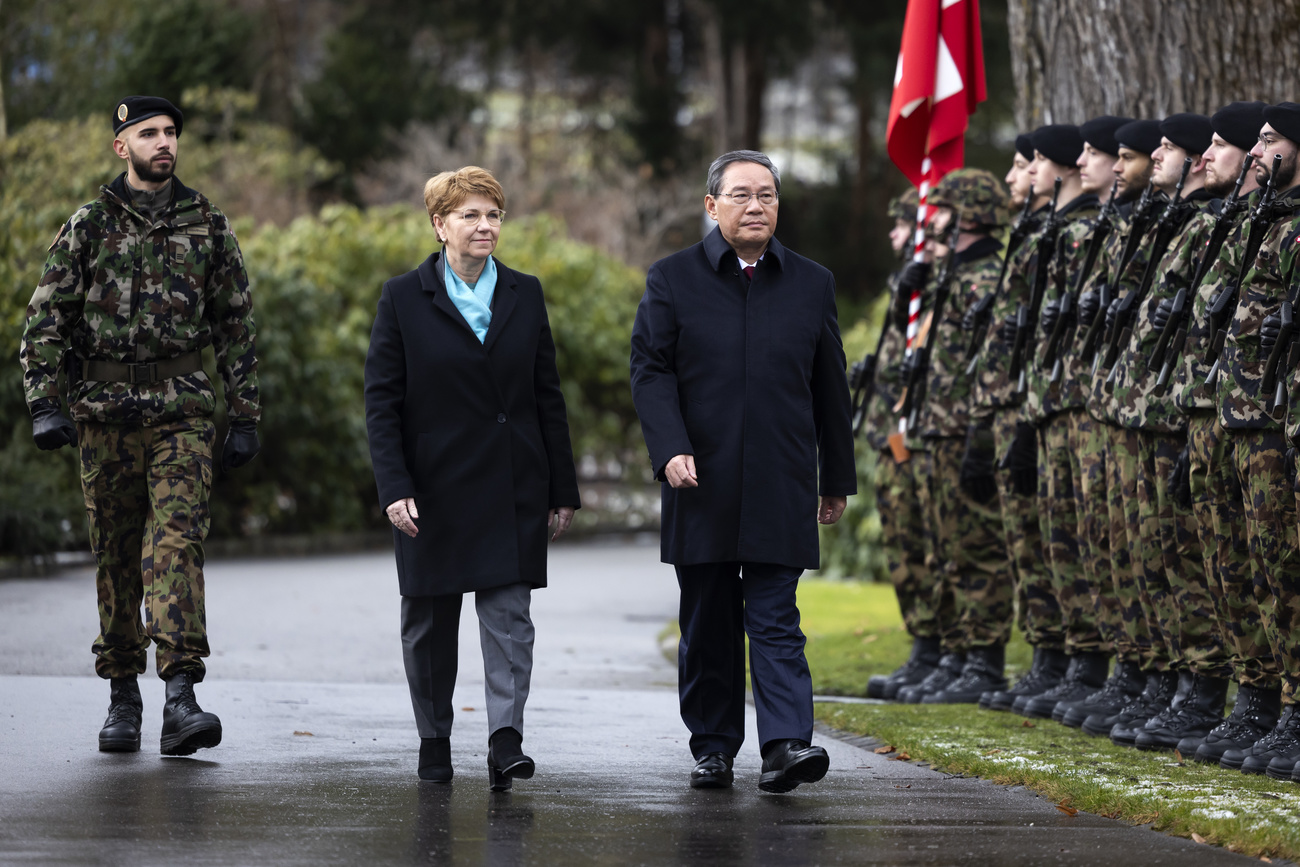
Switzerland’s first foreign policy strategy on China runs out this year, just as talk of a renewed free trade agreement and the pace of ministerial visits pick up. But as security risks grow, Switzerland is under pressure to reframe this key relationship.
When Switzerland unveiled its first China strategy in March 2021, Foreign Minister Ignazio Cassis laid out which issues would mark relations between the two countries: human rights and trade.
Bern, Cassis told reporters at the time, was ready to address deteriorating conditions for dissidents and minorities in the Asian country. “Switzerland does not hesitate to issue criticisms if the situation calls for it,” his ministry’s strategy reads.
That same month, the European Union, the United States, the United Kingdom and Canada all slapped sanctions on China for alleged human rights violations against Uyghurs in the Xinjiang region. But Switzerland hesitated to follow. More than 18 months went by before the government finally decided not to adopt sanctions against its third-most important trade partner.
“The Swiss aren’t naïve,” says sinologist Simona Grano. “They don’t want to jeopardise their relationship with China – especially in the economic sphere, and the political ties that depend on it.”
The decision against sanctions reflects Switzerland’s broad aim, set out in its strategyExternal link, to carve out an “independent policy” on China. The text, designed to bring greater coherence to Switzerland’s dealings with the growing world power, states that neutral Switzerland will align with those who share similar values – Europe, for example – but only if it believes the situation calls for it.
As the foreign ministry plans a new strategy for 2025, the question now facing the Swiss is whether they can stick to the same course. Many countries have growing security concerns over China, both domestically and internationally: the Covid-19 pandemic, war in Ukraine and assertions by President Xi Jinping that China could “retake” Taiwan by force, if necessary, have led some, like the EU, to adapt their strategy. Yet recent events show that Bern still prefers a pragmatic approach over toeing the line of countries with similar values.
Modernising the Swiss-Chinese trade agreement
The latest example of this came in January 2024. While the US, Japan and the EU congratulated Taiwan on its free and fair presidential elections, Switzerland stayed quiet. Instead, a few days later, it rolled out the red carpet for Chinese Premier Li Qiang in Bern, the first high-level visit since President Xi Jinping visited in 2017.
“When it comes to Taiwan, Switzerland has been much more cautious and refrained from doing anything that would anger the Chinese,” says Grano, a lecturer at the University of Zurich. The government, which officially adheres to a one-China policy, has resisted calls from parliament to strengthen ties with democratic Taiwan, such as on science and research.
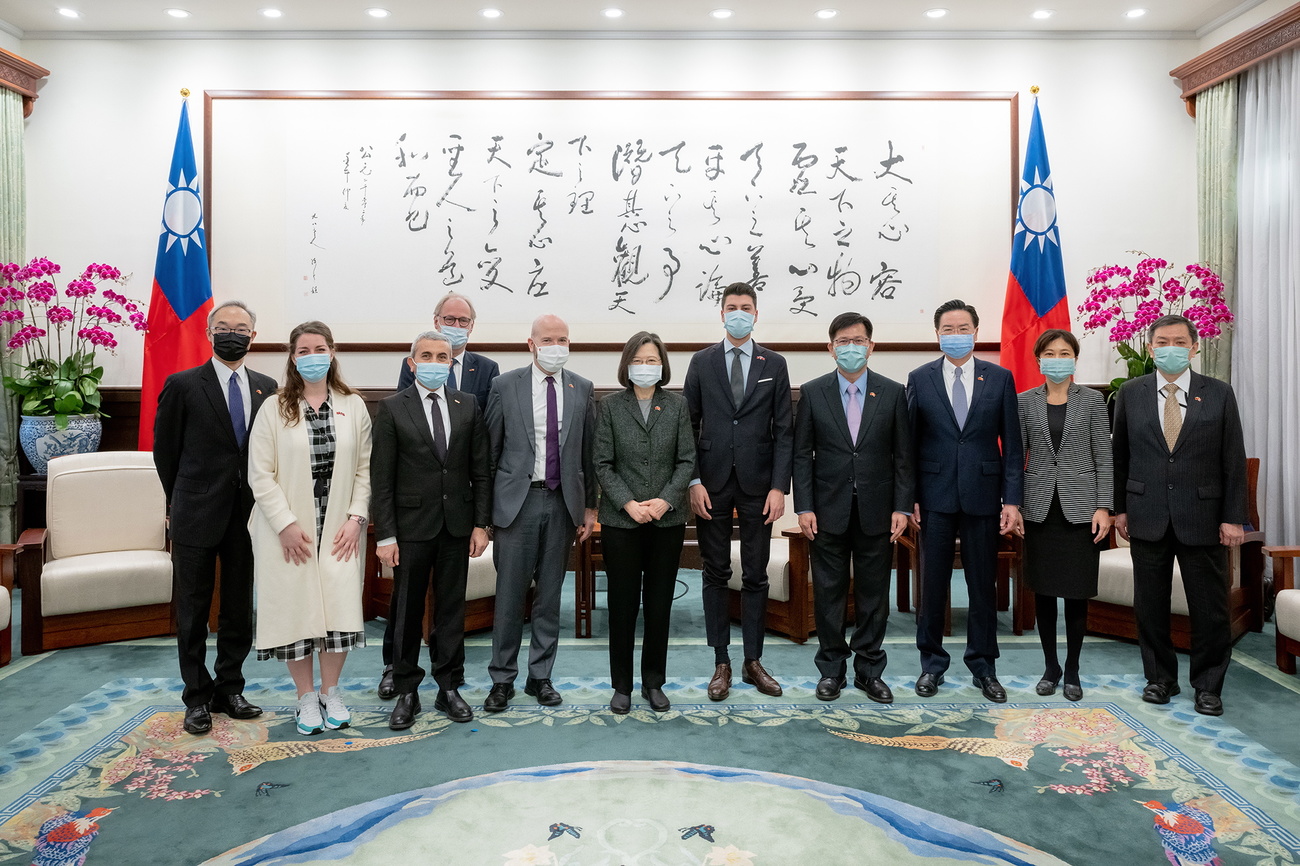
Li’s visit proved beneficial to the Swiss – the two partners signalled their intention to modernise their free trade agreement, signed in 2013. In ten years, Swiss exports to China have roughly doubled in value, to nearly CHF16 billion ($18.5 billion) in 2022. Updating the FTA is a clear aim of the China strategy.
The time is ripe for a revision that would provide greater advantages for Swiss businesses, says Laurent Wehrli, chair of the House of Representative’s foreign affairs committee. The current text does not cover all goods, he explains, and procedures at customs sometimes slow down delivery of certain Swiss goods. A University of St. Gallen studyExternal link estimates that Swiss exporters still pay around $200 million (CHF173 million) in customs duties to China.
As the Chinese economy struggles to recover post-Covid, Beijing is reportedly keen to woo European countries like Switzerland. Rumours are the Swiss Economy Minister Guy Parmelin, will travelExternal link to China later this year with a business delegation. But it won’t necessarily be smooth sailing for Bern. Human rights advocates are urging the Swiss to insert a “human rights clause” in any revised agreement with the Chinese.
Asked if he would be in favour of such a clause, Wehrli says it is “a matter of Switzerland’s political will and should be broached during the negotiations.” Whether China would be willing to discuss it is unknown – the Chinese embassy in Bern did not respond to a request for comment.
Rights groups demand more transparency
Li’s January visit was also capped by an agreement to restart a slew of dialogues – on science, migration, intellectual property and the environment – that had been interrupted by the pandemic.
One dialogue that Switzerland could already restart in 2023 is the one on human rights. These closed-door talks had been suspended by the Chinese back in 2019, reportedly because the Swiss had publicly voiced concerns over Xinjiang, but Bern was still keen on them, according to its 2021 strategy.
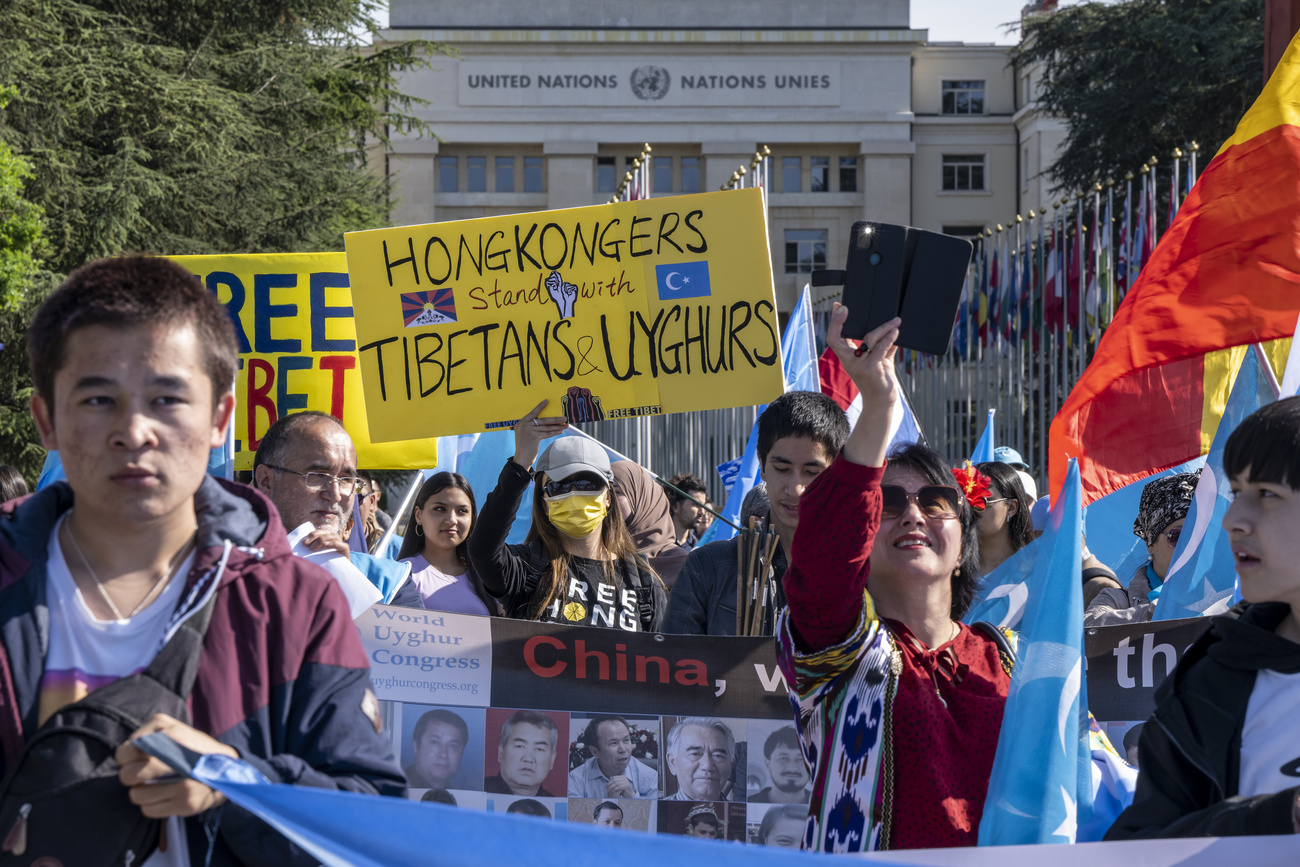
The 2023 dialogue, however, was marred by a last-minute veto by the Chinese to allow five NGOs invited by the Swiss to participate. The foreign ministry in Bern contends that the confidential nature of the meeting still allowed the two to have “a direct, critical and open exchange”. Rights advocates, though, are critical of the Swiss addressing human rights in this way.
“We need transparency,” says Rizwana Ilham, president of the Uyghur Association of Switzerland, one of the groups disinvited from the dialogue. Having a discussion on human rights violations without the people affected present is “pointless”, she adds.
Growing security concerns at home and abroad
What Switzerland will have to contend with as it mulls its next China strategy are rising security concerns at home and abroad. A 2023 Swiss government report acknowledgedExternal link the need to reduce any geopolitical risks linked to digital infrastructure. The report came on the heels of allegations that the Chinese company Huawei, which built Switzerland’s 5G cellular network with a Swiss operator, deployed spies in Denmark, where it has a 5G contract.
Suspicious have also grown that Chinese researchers are conducting knowledge espionage at top Swiss universities. Observers say this can end up pitting Switzerland against the US, which is tied in a technological rivalry with China. Allegations of surveillance of overseas Chinese have also surfaced. “Virtually every country is a target” of this type of operation by the Chinese state, Laura Harth of human rights group Safeguard Defenders previously told SWI swissinfo.ch.
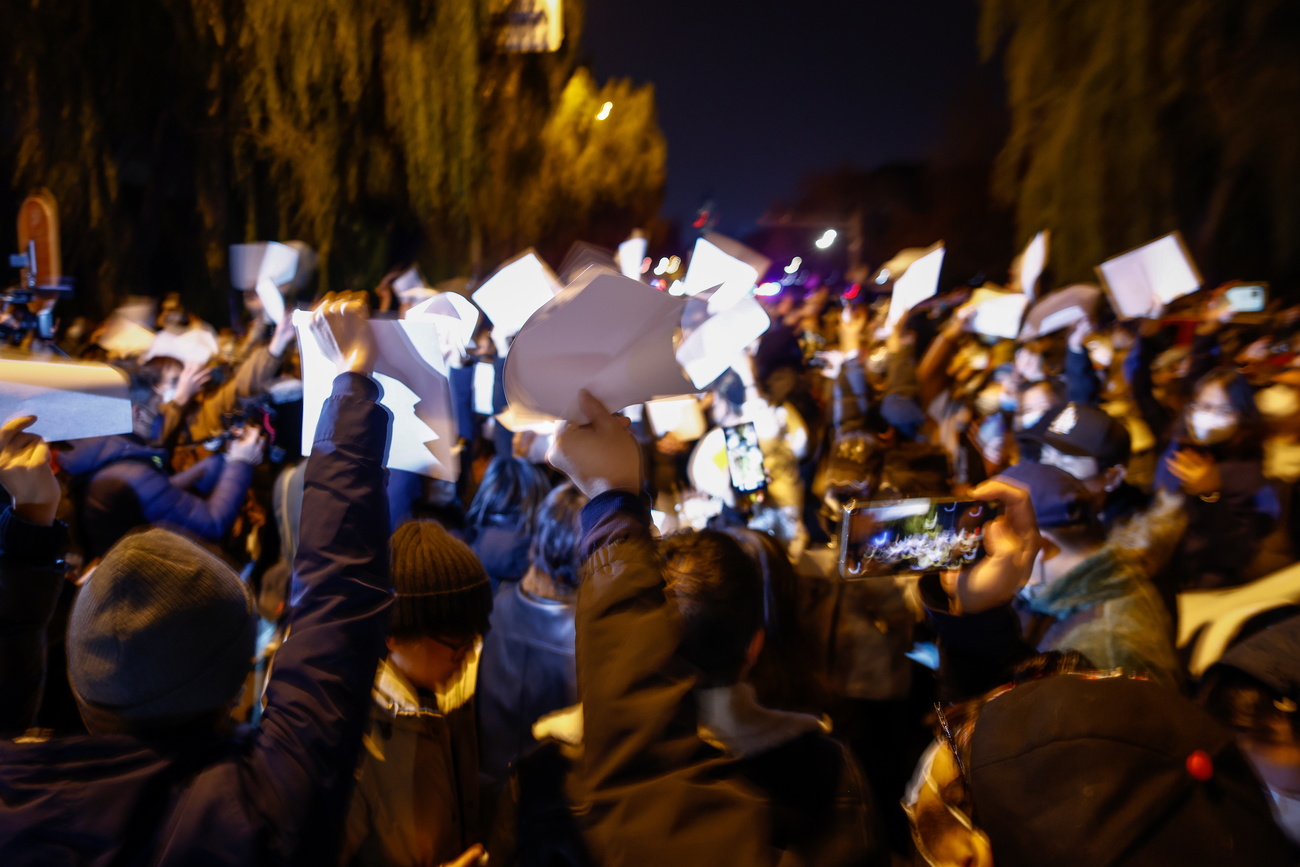
More
In Switzerland, Chinese dissidents now know they are not alone
Abroad, the war in Ukraine has prompted reflections on a potential conflict over the Taiwan Strait, an important flashpoint in relations between the US and China. Switzerland will have to address all of these growing geopolitical tensions in the coming years, says Grano.
Should the Swiss align more with Europe?
Some states are already changing tack. The EU, for example, is now pursuing a “de-risking” strategy: reducing dependencies on China for key raw materials and products, while keeping channels open to voice concerns about other issues, such as Taiwan. Germany’s China strategy, published in July 2023, acknowledges that “China has changed, and therefore we must change our approach”.
Last year the Swiss foreign ministry undertook a review of its own China strategy. It declined to say what the main findings were, beyond that the text remains valuable for policy coherence and representing Switzerland’s interests and values.
In Bern, however, the need for a change in approach is being heard above all in parliament, where views increasingly diverge from the government’s on matters like addressing human rights and supporting Taiwan.
But Switzerland, unlike most other countries in Europe, has the added challenge of being neutral. After facing questions over its neutrality for applying sanctions on Russia following its invasion of Ukraine, the Alpine country wants to guard its reputation as a neutral state in the eyes of the Chinese.
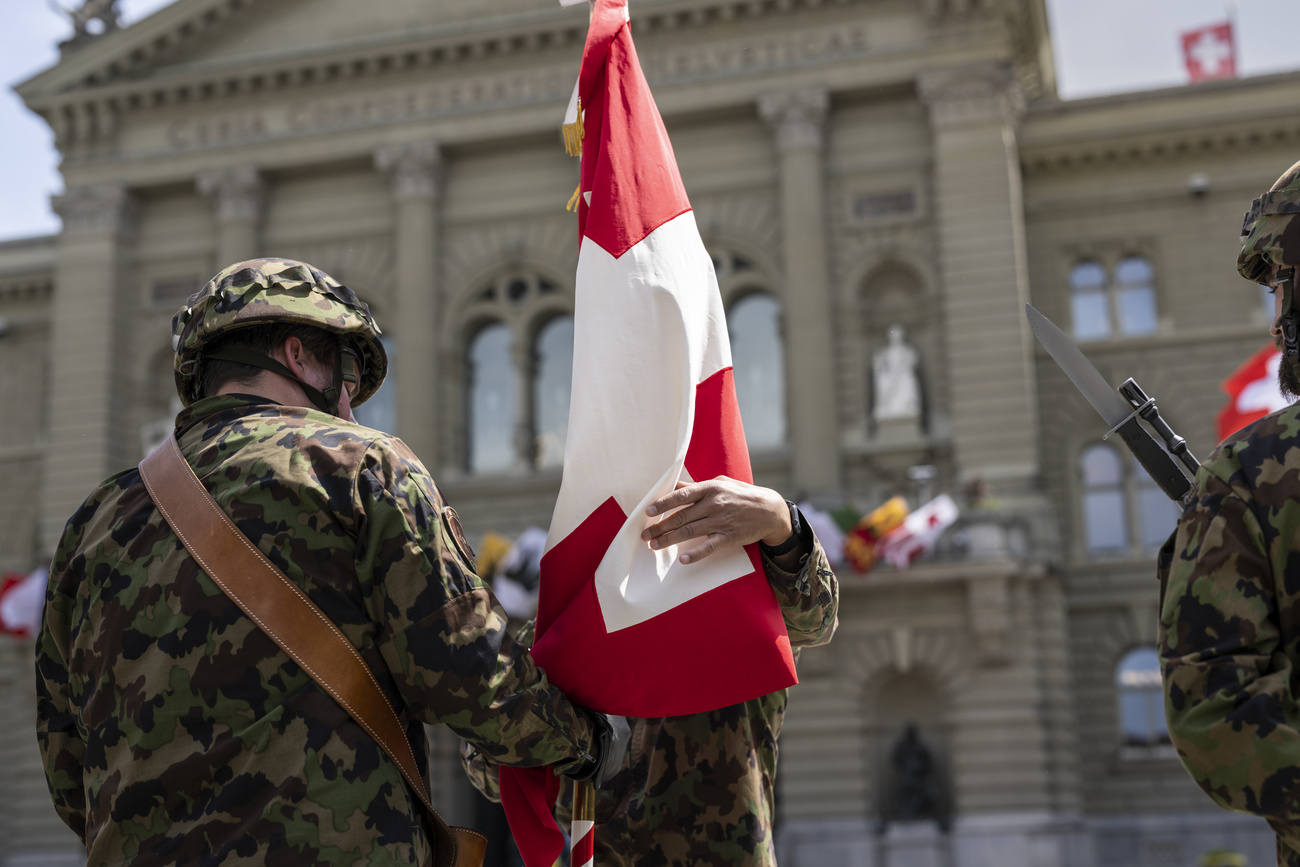
More
Wanted: politically convenient definition of ‘neutrality’
Switzerland is keen to have China at a peace conference for Ukraine it plans to host this year, and Cassis is in China this month reportedly to woo it to the table. China has remained an important ally of Russia’s throughout the conflict.
“Of course, Switzerland wants to carve out its own policy because of its peculiar situation as a neutral country,” says Grano. But, she adds, even the 2021 strategy points out that, “as a small state, you are stronger if you have better coordination with countries that share similar values”.
Developments beyond its control may ultimately force Switzerland to decide the situation does in fact call for alignment with these countries – including the US, its second-biggest trade partner, which may well pressure it to choose a side in its rivalry with China.
And, should conflict break out in the Taiwan Strait, Switzerland is not likely to waffle on sanctions this time, Grano says: “If China were to do anything – and we hope it won’t – I believe that Switzerland would implement sanctions.”
Edited by Virginie Mangin

In compliance with the JTI standards
More: SWI swissinfo.ch certified by the Journalism Trust Initiative










You can find an overview of ongoing debates with our journalists here . Please join us!
If you want to start a conversation about a topic raised in this article or want to report factual errors, email us at english@swissinfo.ch.